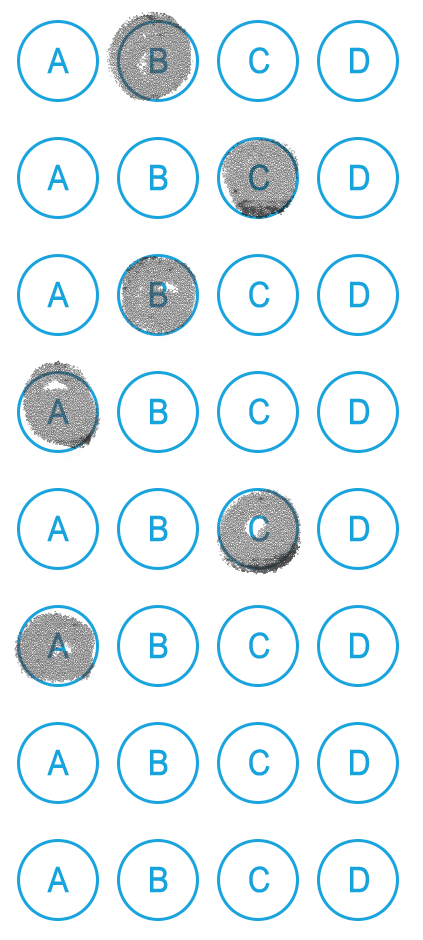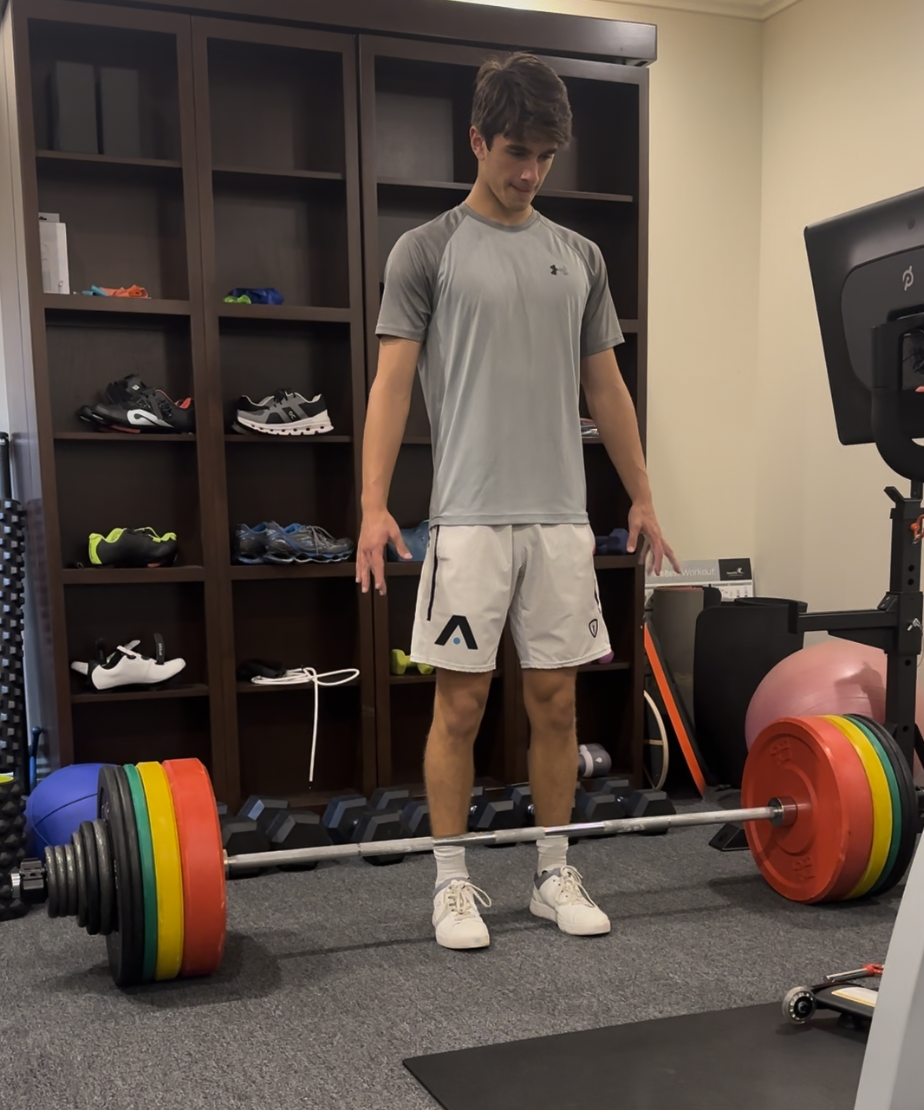For a majority of students at SHP, Advanced Placements are a large part of the high school experience. Maybe you’re a freshman and are thinking about taking APUSH next year, or maybe you’re one of the sophomores preparing for AP English, or the juniors and seniors who are actively taking AP classes and exams. SHP students are not alone in this treacherous journey for a 5 on the national exam, but in recent years, schools in our neighborhood have begun to phase out AP classes. A prime example is our neighbor and rival—Menlo School.
But before exploring that further, we must understand what AP classes really are. Where do they come from? How might this have affected Menlo’s decision? I spoke with Meredith Hale, 25’ of the Current Events Club, who recently gave a presentation for the club on the College Board. Hale explained that the College Board is a nonprofit organization that develops and controls AP exams and curriculum, as well as the SAT. The services they provide are crucial elements of the college admissions process for students across the country, and in this way, the College Board has little to no competition. As such, Hale continued, the lack of other options for students ensures that “they can set their prices [of taking the national exam] to whatever they want.”
Of course, there are laws in place to counteract monopolies: according to USA Today, “the owner or the CEO [of a monopoly] can be convicted of a felony or fined up to one million bucks,” as well as other consequences for violating antitrust regulations. However, because the College Board is considered a nonprofit organization, its place under these laws is hazier. Hale touched on how “as a nonprofit… people have an expectation of them to be a lot more transparent about their finances and how they use them.” But with the College Board CEO, David Coleman, making over 2.5 million dollars a year according to USA Today and a recent lawsuit accusing the company of being in violation of the American Disabilities Act, its reputation as a nonprofit and as an institution has become more widely questioned.
But is this why Menlo, as well as other high schools, are moving away from APs? The answer became evident after an interview with Mr. John Schafer, Upper School Director of Menlo: no. The primary reason he offered was that the AP curriculum posed unnecessary challenges to students and faculty.
Schafer acknowledged that AP classes were beneficial in some respects—“I think students worked hard in those classes and learned a lot,” he said. He also noted that “teachers and even students like this notion of an outside standard” to understand their level of proficiency in a topic on a national level. However, “on the con side, [Menlo noticed] a couple things. One is that a lot of students were taking the AP classes just because they had the AP label, they weren’t particularly interested in the material.” One could argue that rings true at SHP, too—students clamor to fill their schedules with AP classes for college credit and a “challenging” curriculum in the eyes of admissions officers.
On top of that, teachers at Menlo, including Schafer himself, “thought it was time to take control of [their] curriculum.” Many educators disliked the rigid curriculum set by the College Board and wanted to take more time and delve deeper into certain subjects. Since phasing out APs, Shafer claims that Menlo teachers “appreciate the autonomy to craft the class that they want to be teaching.”
Many people in the Menlo community were alarmed by the removal of AP courses, but Mr. Schafer made clear in a video on Menlo’s weekly newsletter that “this is not uncharted territory.” Other schools in the area, including Nueva, Sequoia, and Castilleja, do not offer AP courses and still offer a wide range of challenging courses. Although he was “not in a position to make a recommendation for any of the schools,” he upheld that “challenge doesn’t just mean AP, it could mean all kinds of different things.” Especially at a school like Menlo that has top-of-the-line facilities and resources, courses can be made challenging without the standardization of college-level AP curriculum.
Of course, Sacred Heart is similar in this regard, but we still have AP classes built into the curriculum. Jorge Reyes, SHP’s own Assistant Principal of Curriculum and Academics, spoke to this situation. He made clear that SHP offers AP courses because “we do have a high number of students that are academically prepared when they come to high school, and reach that college level, you know, sooner.” He also acknowledged that as a school, “we do like to challenge our students.” This, of course, is recognized by colleges and speaks to SHP’s identity as a preparatory school. As Mr. Reyes put it, “When a student has reached the end of a particular course sequence, their desire to challenge themselves by taking a college-level course during high school is seen as a desirable quality in a [college] candidate.”
However, AP courses are not always treated this way—as courses that students choose if they are extremely interested and proficient in a certain subject. For example, AP English Language and Composition is a required course for juniors. This is because, according to Mr. Reyes, “the English department feels strongly that all of the students that go through our program are going to be ready for that level.” However, the absence of any other options backs students into a corner of taking a challenging course and doing hours upon hours of work on a subject they might not feel passionate about. Furthermore, the fact that the course is required for everyone limits opportunities for avid English students to showcase their initiative to take more challenging classes, because everyone is taking it.
Returning to the conversation about phasing out APs, Mr. Reyes says the idea “hasn’t gotten a lot of traction.” Similarly to Mr. Schafer, Reyes said “It’s good to have a sort of national ‘bar’ so it’s not just some specific teacher’s take on a certain subject, it’s a national standard.” While this is true, colleges also understand that schools without APs have harder at-level and honors classes. Mr. Reyes acknowledged that the main issue brought up as a result of AP classes was teacher autonomy, but he also said that this “is a concern… of the School of making sure that… we help students make decisions about the courses that they’re going to take.” This is where the counseling and support systems and resources at SHP come into play. Mr. Reyes also urged students to take “into consideration what the panorama looks like in terms of college admissions, and to also look at what is within their interest, their ability, and their preparation.”
Finally, for an opinion outside of Sacred Heart and Menlo, I sat down with Dr. Denise Clark Pope, a senior lecturer at the Stanford Graduate School of Education and co-founder and strategic advisor for Challenge Success, a Stanford-associated nonprofit organization. Dr. Pope founded Challenge Success after working as a high school teacher and recognizing how students were “just kind of going through the motions: you hate school, there’s a lot of cheating, people are sleeping nowhere near the amount of sleep they’re supposed to get. And it’s just a pressure cooker.” She wanted students and administrators to recognize that school doesn’t have to be this way.
Now, Challenge Success works to ensure students get “the right amount of sleep, feel healthy, aren’t totally stressed out and anxious every day, and feel like they can be authentically themselves.” Dr. Pope made clear that high school students should be getting between 8 and 10 hours of sleep, but the average time students get per night is 6.8 hours, and this causes lapses in energy and also can have hugely negative impacts on comprehension and learning. In the past, Dr. Pope and Challenge Success worked with SHP to send out a student survey.
On the topic of APs, Dr. Pope stressed that “college students typically only take four classes per year. So any student who’s taking more than 4 APS a year as a high school student is taking more than what a typical college student takes.” She also noted that college students have more time in between classes to do readings and study. In comparing the current system of testing in the context of the AP curriculum, she referenced the driver’s test. “It’s so important that we want everyone to be a good driver, you can take the test over and over and over again until you learn what we need you to learn.” The AP curriculum, she argued, “is covering a lot of stuff, but nothing that is very deep or that will really stick.” Classes go from one unit to the next regardless of actual depth of understanding because of the national exam looming at the end of the year.
Finally, Dr. Pope acknowledged that yes, “if you’re going to a public school in rural Kansas” and APUSH is “the one challenging course offered to you,” it would be best to take it. But if SHP were to give up APs, it would be, in her words, “100% fine… You have creative teachers, you have motivated students, you’ve got resources that will allow for the creation of more challenging classes without the handcuffs that come with teaching an AP course.”
Will SHP get rid of APs? It doesn’t look like it, and I don’t plan on wasting ink trying to convince the school to change its entire curriculum. What the school should do instead is reevaluate how we are offering, thinking about, and teaching AP courses. APs should exist for students to take into consideration not as a requirement, but as an extra option if they are truly interested in the topic. Primarily offering AP History courses, requiring AP English, and requiring all students to take expensive national exams places undue pressure on students. How are APs regarded at this school now? They are regarded as stepping stones to college—take two sophomore year, three junior year, and four senior year, and suddenly the glittering gates of the Ivy Leagues are thrown open in welcome.
Regardless of the fact that SHP is a preparatory school, the APs in its curriculum should not be obligatory. Choosing not to take an AP is not an admission of anything, and maybe, just this once, SHP can learn something from Menlo and other schools before it. Not simply to do away with APs, but to view them in an optional, non-compulsory light. Students taking AP English should be passionate about English, and not backed into taking the AP with all the added stress, the lost sleep, and labels.
To conclude, a final word from Dr. Pope on the mission of Challenge Success: “We work with schools to figure out ways to teach in a way that’s exciting, and also healthy for kids without this crazy overload. And this is not dumbing down. This can be, really, even more challenging.”
Categories:
A Student’s Take on Where SHP Stands with AP Curriculum
0
More to Discover











